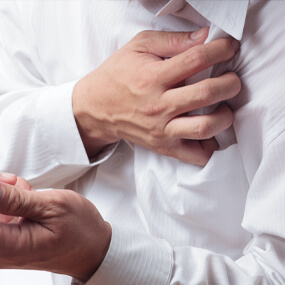12 Reasons Regular Dental Checkups Are So Important

Most dental professionals recommend that healthy people schedule visits with their dentists twice a year. A regular cleaning and checkup may not be something you look forward to, but it is crucial to minimizing your dental costs and avoiding gum disease and tooth decay over the course of your life. In that spirit, let us explore a dozen excellent reasons that you should never miss a dental checkup.
1. Oral Cancer Screening
Many people are unaware that most dentists and hygienists perform oral cancer screenings as part of their regular checkups and are pivotal in the early detection of this serious disease. Caught early enough, oral cancer is often easily treatable. The survival rate among patients who were diagnosed early is above 84 percent. The further along the cancer was when the diagnoses were made, and the rate drops precipitously.
Dentists are highly trained in identifying the early indications of oral cancer, and statistics reveal that people who see a dentist biannually are much more likely to be diagnosed early than people who do not visit a dentist at all or go only when there is an obvious problem. Oral cancer screenings are noninvasive, cause no discomfort, and only last about a minute or two. Dentists use a handheld scope, and the scope lets them detect the dead tissue that is a byproduct of tumor formation.
2. Plaque and Tartar Buildup
You can get rid of most of the plaque that builds up in your mouth by brushing and flossing twice a day. But even the most ardent brusher is going to miss some plaque here and there. That missed plaque will eventually harden into tartar, which is practically impossible to remove at home. Your dental hygienist will need to scrape it away during your next cleaning, and a professional cleaning every six months is imperative because plaque and tartar are the causes of most oral health issues.
3. Gum Disease and Cavities
In fact, plaque is directly the cause of gum disease. If you never have plaque buildup, you will never have gum disease. As plaque accumulates along and below the gumline, it causes a bacterial infection. That infection results in an inflammatory response, which is gingivitis, the earliest stage of gum disease. Over time, the tissue that connects your gums to your teeth will disintegrate.
At this point, the gum disease is often characterized by swelling, tenderness, and even bleeding. The infection can also spread to the supporting structures, including the bone, and this is where gingivitis progresses into the more advanced and much more serious periodontitis. Drastic measures are required at this point to prevent the loosening of teeth that could require extraction or eventually fall out on their own.
Cavities are also an issue. Cavities are caused by acids that are the byproduct of bacteria breaking down food particles in your mouth. Those acids erode the enamel of your teeth. This erosion begins as tiny pinholes, but that is just enough to lead to more serious tooth decay. Plaque secretes acids, but you can also harm your teeth with regular and high acidic content in the foods you eat and beverages you drink.
4. Recognizing Bad Habits
Many people have bad habits that are doing a great deal of harm to their teeth and gums over time without even realizing it. A prominent example is biting your nails. Almost everyone recognizes it as a bad habit, but most people are unaware of just how much wear and tear it causes. Other common problems include chewing ice, chewing toothpicks and other foreign objects, brushing your teeth too hard, smoking cigarettes, and bruxism, which involves excessive teeth grinding or clenching of the jaw.
Your dentist will recognize the damage you are causing. He or she will discuss it with you in order to determine the cause. You may even identify a bad habit you did not even know was present. The damage can be fixed, and even though habits can be tough to break, it is much easier when you are aware of the behavior and realize just how destructive it is to your oral health over the long-term.
5. Better Health Awareness Through Digital X-Rays
Modern technologies allow dentists to identify underlying issues that may not be otherwise apparent just yet. This is why most regular dental checkups involve using an X-ray machine to capture digital images of the teeth and jaw. Impacted teeth are an example of a common problem often detected through X-rays. Dentists can also identify jawbone damage, bone decay, swelling, and tumors. X-rays are key to catching many destructive diseases before they manifest the symptoms that do the damage.
6. Examination of the Head, Neck and Lymph Nodes
Many people think that a regular checkup is limited to the teeth and gums, but this is not the case. In addition to examining your entire oral cavity, your dentist will examine your head, neck, and lymph nodes. The lymph nodes, which are just below the jaw, can swell or have lumps or other abnormalities. If an issue is found with the lymph nodes, your dentist can refer you to the appropriate specialist.
Lymph node examination is particularly important because the nodes often do not hurt or even seem unordinary even when something is wrong. Your dentist, however, can identify the signs that can indicate cancer, growths, and other serious conditions. Catching these types of problems early often makes a significant difference in how easy the problem is to treat.
7. Better Overall Health
Your oral health is intertwined with your systemic health. An imbalance of oral bacteria or inflammation of the gums can make you prone to other health issues, and systemic health issues can make you prone to gum disease and so forth. It is essential to keep these systems in balance for your short-term health but also your longevity, and a dentist with whom you have built a relationship is crucial toward that end. For people with type 2 diabetes, cardiovascular disease, and other serious illnesses, their dentists often play a key role in their welfare and have to coordinate that care with patients’ physicians and specialists.
8. Whiter Smile
The foods we eat and the beverages we drink discolor our teeth over time. This is particularly true if you enjoy coffee, tea, tomato sauce, carbonated drinks, vinegar, and so on. Some prescribed and even over-the-counter medications can stain your teeth as well. While regular brushing makes a difference, it usually is not enough to prevent staining over time. This often leads to people brushing their teeth too hard, which does more damage than good. When a dental hygienist cleans your teeth, you get a deep clean, and people who regularly have their teeth cleaned in this manner are less prone to discoloration.
In the event your teeth do darken over time, teeth whitening may be an option. In-office teeth whitening paired with a take-home kit can whiten your teeth by 10 shades or more. This is much better than OTC kits, which do not work as well and can damage your teeth without the guidance of your dentist.
9. Enjoy Your Teeth Even in Your Golden Years
Losing your teeth can undermine your self-confidence, cause a slate of bigger health issues, and be expensive to replace. We often associate missing teeth with old age, but there is no reason that you cannot enjoy your teeth throughout your entire life. Gum disease is the leading cause of tooth loss, which is why it is so important to brush, floss, and see your dentist on a regular basis.
10. Protect Your Heart
As mentioned earlier, there is a connection between your gum health and your heart health. There are numerous studies, including a prominent one presented at the American Heart Association Medical Conference, that show a substantially higher rate of gum disease among people who have heart disease or have experienced a stroke. This particular study revealed that people who have their teeth professionally cleaned twice a year are 24 percent less prone to heart attacks and 13 percent less prone to strokes.
11. Fresh Breath
Halitosis as a recurring problem is often an issue that is exacerbated over time through poor oral hygiene at home and not visiting a dentist on a regular basis. Fresh breath makes you feel better about yourself, and it helps make great first impressions and foster positive social interactions.
12. Deeper Clean
Do you enjoy how your mouth feels after you brush, floss, and rinse? If you have not had your teeth professionally cleaned in a while or perhaps ever, then you are missing out. You will be amazed at how good your teeth feel. In addition, it makes your teeth easier to keep clean at home because there is less surface area for plaque, and that makes you a lot less prone to any oral health issues.
The Importance of a Regular Checkup
Dentists fix teeth and gums, but their focus is on the awareness and prevention that avoids those problems in the first place. People who skip regular visits are often concerned with the cost and inconvenience, but you will end up paying more and spending more time down the line. A dental checkup every six months is an opportunity to feel better about yourself and to make the minor corrections that protect your oral health—and even your overall health—for the long run.
See Dr. Clark in Scottsdale Twice a Year
When it comes to oral health, one of the more common mistakes younger adults make is avoiding regular checkups because their teeth and gums look and feel great. But how your teeth look and feel can be deceiving because oral health issues often take time to manifest obvious symptoms. Jeffrey D. Clark, DDS, is a leading Arizona dentist who performs comprehensive examinations that extend beyond the mouth to the neck and head. Through his care, you can avoid common oral health issues, save money, and get screened for other serious health concerns. Call Scottsdale Cosmetic Dentistry Excellence today at 480 585 1853 to schedule your checkup.




